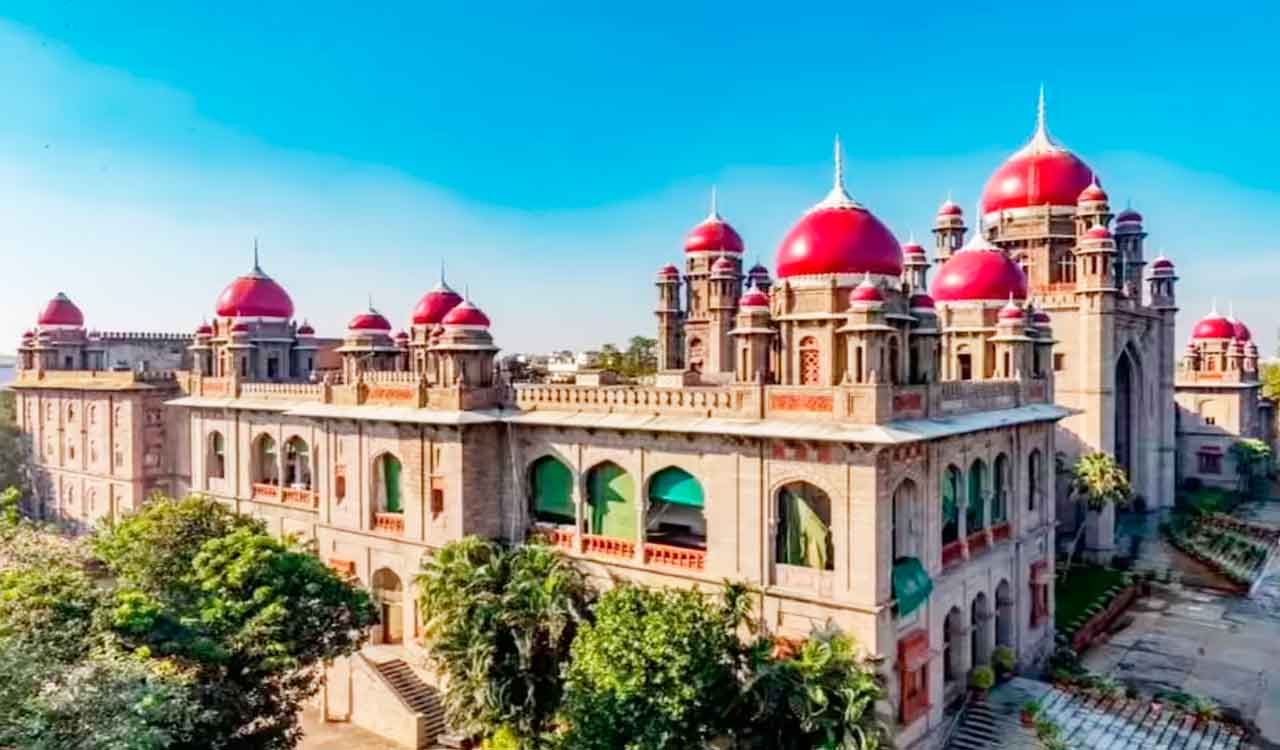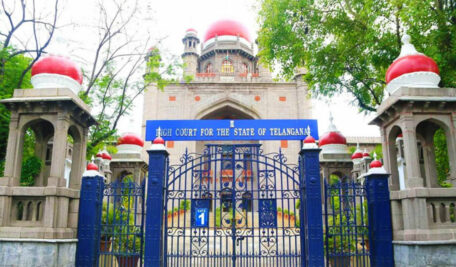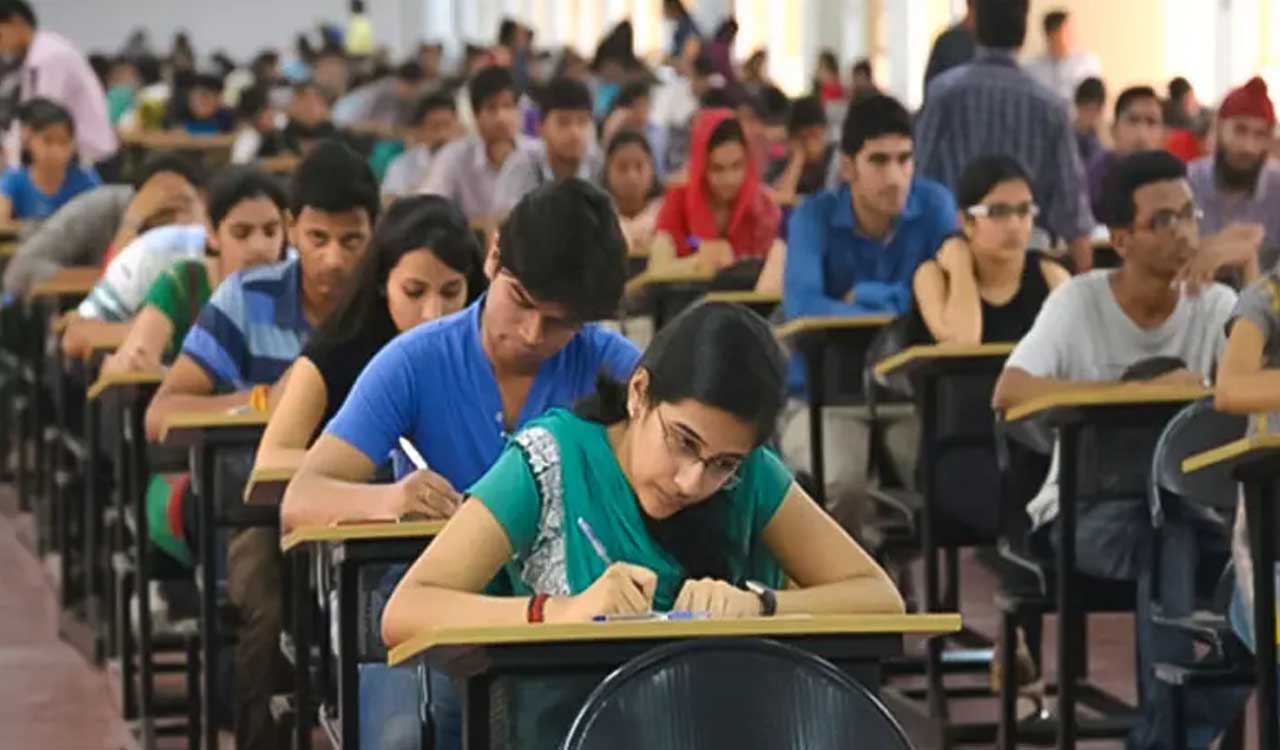Telangana High Court strikes down Group 1 Mains results; calls for re-evaluation
The Telangana High Court set aside TGPSC Group-1 Mains results, citing “glaring lapses” in evaluation. Justice Namavarapu Rajeshwar Rao directed the Telangana Public Service Commission (TGPSC) to re-evaluate all answer scripts within eight months and warned of a full re-exam if irregularities recur. Postings to 563 vacancies have been put on hold.

By Legal Correspondent
Hyderabad: The Telangana High Court on Monday cancelled the results of the Group–1 Mains conducted in October 2024, calling the evaluation process riddled with irregularities and illegalities. Justice Namavrapu Rajeshwar Rao ordered the Telangana Public Service Commission (TGPSC) to re-evaluate all answer scripts afresh under strict norms laid down in Sanjay vs Uttar Pradesh Public Service Commission.
Also Read
Postings to the 563 vacancies can only be made after revaluation. The court gave TGPSC eight months to finish the process and warned that if malpractice recurs, it would direct a complete re-conduct of the Mains examination.
The Court observed that the Commission had failed to maintain transparency and integrity, had acted in a biased manner, and had deviated from its own rules while conducting the Group–1 Mains. The judgment strongly criticised TGPSC for negligence and inefficiency, pointing out that the affected individuals are the unemployed youth of Telangana who invested heavily in coaching, studied for long hours and in many cases even resigned jobs to prepare for the examination.
The Court noted that the Commission had failed in both procedural aspects and evaluation methods, which is impermissible. It further observed that although the Group–1 exam had been cancelled twice in the past, the Commission had not learnt lessons from its previous mistakes.
The case arose from a series of writ petitions led by Paramesh Matta and others who alleged that the evaluation of the Mains held from October 21 to 27, 2024, was arbitrary, biased and unconstitutional.
Petitioners argued that the process was marred by irregularities such as mismatches in the number of candidates who appeared. They pointed out that at least 1,369 candidates with consecutive hall ticket numbers received identical scores, raising suspicions of manipulation.
Petitioners also claimed that certain exam centres produced a disproportionately high number of top-500 ranks while others had none, creating an impression of examiner bias.
Another major allegation was discrimination against Telugu-medium candidates who made up nearly 40 per cent of the participants but found negligible representation in the merit list, while Urdu-medium candidates had a success rate above ten per cent.
Petitioners further alleged that unqualified evaluators, including retired professors and private tutors, were entrusted with assessment and in many cases evaluated papers outside their expertise.
They highlighted instances where candidates who secured high marks in the UPSC for similar essays were given inexplicably low scores in TGPSC evaluation.
These irregularities, they contended, violated Articles 14, 16 and 21 of the Constitution and warranted either a revaluation of all answer scripts or a complete re-examination.
TGPSC defended its process as transparent and fair. The Commission said that double valuation was followed with evaluators drawn from reputed universities and that hall ticket renumbering as well as the allotment of women-only centres were logistical measures.
It maintained that the allegations of bias or manipulation were baseless and were intended to stall the recruitment process. The Commission also argued that Telangana has been suffering from a shortage of Group–1 officers since 2011 and that further delays would hurt governance.
After hearing both sides, the High Court found that the General Ranking List published on March 30, 2025, was illegal and unsustainable. It held that the evaluation process lacked uniformity, transparency and moderation. Discrepancies in candidate numbers and the skewed results across centres were described as serious irregularities.
The court also took note of the unfair disadvantage suffered by Telugu-medium candidates. Justice Rajeshwar Rao ruled that the sanctity of the examination had been compromised and directed that all answer scripts be freshly evaluated under proper guidelines.
The recruitment process has already seen multiple twists. In December 2023, the newly-elected Congress government increased the number of vacancies to 563 and re-issued the notification in February 2024.
The prelims were conducted on June 9, 2024, with 3.02 lakh candidates appearing, of whom 31,403 qualified for the Mains. The Mains examinations were held from October 21 to 27, 2024, with 21,093 candidates taking part. Results were announced in March 2025, followed by certificate verification in April.
Monday’s judgment has now upended the entire process, forcing a complete revaluation.
Related News
-
Telangana HC hears plea over alleged extortion bid to withdraw PIL
-
Telangana HC quashes cases against Osmania University Arts College principal
-
Telangana High Court grants relief to two Inter students ahead of board exam
-
Telangana High Court allows State, Centre three weeks to file counters on plea against GHMC split
-
Horoscope: Find out your star predictions today, Feb 23, 2026
31 seconds ago -
Marriage related frauds, worrisome trend: Sajjanar
23 mins ago -
Hyderabad: Teenager drowns in swimming pool in Alwal
26 mins ago -
Rashmika Mandanna confirms wedding with Vijay Deverakonda
45 mins ago -
Alia Bhatt makes her BAFTA debut with Hindi speech
49 mins ago -
‘Shamshan no place for festivities’: Kashi Vidvat Parishad opposes ‘Masane Ki Holi’ in Varanasi
57 mins ago -
Indian Embassy issues advisory for its nationals in Mexico after drug lord El Mencho killed
1 hour ago -
Two schools in Delhi receive bomb threat; search operations underway
1 hour ago




